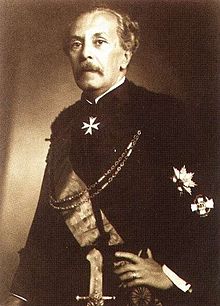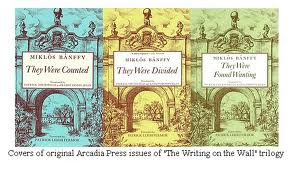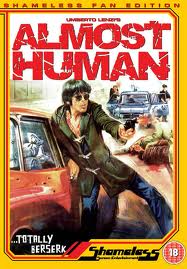 |
| Republican or Democrat? |
Have you ever wondered why someone chooses to vote Republican or Conservative? Or who agrees with the stuff that comes out of the mouths of Glenn Beck, Rush Limbaugh and Ann Coulter? Is it simply the case that some people weigh the available economic and sociological evidence and, after due consideration, decide that the right wing is the right way to go? Or is there a psychological component to being conservative, especially at the angriest, spittle-flecked end of the right-wing spectrum? It turns out there is a compelling explanation for why people work for and support right-wing political parties and causes. The answer comes in a book titled
On the Psychology of Military Incompetence (1976) by Norman F. Dixon.
Dr. Dixon served ten years in the British Army from 1940-50 and, among other honours, became a Fellow of the British Psychological Society. His book is an attempt to explain why military organizations often encourage and promote people who are intellectually incompetent or psychologically unfit for the tasks they're charged with. Here's how Dixon frames his thesis:
"How, if they are so lacking in intelligence, do people become senior military commanders? And what is it about military organizations that they should attract, promote and ultimately tolerate those whose performance at the highest levels may bring opprobrium upon the organizations which they represent?"
One of the main reasons for this situation, as Dixon explains, is that the military tends to attract people with low self-esteem, weak egos, and/or severe anxieties about disorder. A military environment gives strength and value to those who see themselves as weak or outsiders, and order and structure to those who fear freedom and disorder. Here's how Dixon explains it:
"...displayed behaviour symptomatic of extremely weak egos. In this light, their behaviour typifies the neurotic paradox in which the individual's need to be loved breeds, on the one hand, an insatiable desire for admiration with avoidance of criticism, and, on the other, an equally devouring urge for power and positions of dominance. The paradox is that those needs inevitably result in behaviour so unrealistic as to earn for the victim the very criticism which he has been striving so hard to avoid."
And:
"Incompetent commanders, it has been suggested, are often those who were attracted to the military because it promised gratification of certain neurotic needs. These include a reduction of anxiety regarding real or imagined lack of virility/potency/masculinity; defences against anal tendencies; boosts for sagging self-esteem; the discovering of loving mother-figures and strong father-figures; power, dominance and public acclaim; the finding of relatively powerless out-groups on to whom the individual can project those aspects of himself which he finds distasteful; and legitimate outlets for, and adequate control of, his own aggression."
It's at this point that I want to extrapolate from Dixon's book the idea that what he says about the military mind and character applies equally to the right-wing mind. The two are not far apart. In fact, it would be hard to find a party or person of the right that doesn't offer vociferous support for the military or marital virtues. The most extreme form of this is fascism, in which politics becomes blended with militarism. Right-wing parties, whether it's the Republicans in the U.S. or the Conservatives in Canada and the U.K.
are uniformly pro-military. These parties are quick, even eager, to undertake or urge military action, and military spending almost inevitably increases when they're in power. Dixon goes on to show that, unsurprisingly, the military also attracts authoritarian personalities:
"In the place of free-ranging, creative and inventive thought, an authoritarian's thinking is confined to rigid formulae and inflexible attitudes. He is intolerant of unusual ideas and unable to cope with contradictions...the authoritarian personality is intolerant of ambivalence and ambiguity. Just as he cannot harbour negative and positive feeling for the same person but must dichotomize reality into loved people versus hated people, white versus black and Jew versus Gentile, so also he cannot tolerate ambiguous situations or conflicting issues. To put it bluntly, he constructs of the world an image as simplistic as it is at variance with reality."
If the above passage was creatively rephrased it could stand as an oath of allegiance for Tea Party members. The desire to reduce politics and the world to the most simplistic terms has been a hallmark of rightist politicians from the local to the international level. George W. Bush's "Axis of Evil" was one example, of many, of his attempts to turn the world into an Us versus Them situation. And the current crop of GOP presidential candidates go out of their way to boil all issues down to whether something is American (capitalist, Christian, pro-family, patriotic) or un-American (socialist, godless, liberal, elitist). Sarah Palin's success amongst the rightist demographic is based largely on her simple-mindedness; they can rest assured that she has no complex or contradictory thoughts, and her opinions proceed from a simplistic and unalterable set of values.
It would also seem that politicians who are, to put it scientifically, dumber than a bag of hammers, are invariably working for the right. It's a perfect environment for them; they have self-esteem issues from knowing that they're dunces, and right-wing parties keep things simple for them with policies and slogans a sixth grader can understand. Examples of dim bulb rightists are almost too numerous to mention. But I will: the previously mentioned Sarah Palin, Dan Quayle, Ronald Reagan, Rick Perry, Michele Bachmann, Rick Santorum and George W. All of these people have been the butt of late-night TV humour precisely because they are stupid. Finding an equal number of high-profile left-wing politicians this dumb is almost impossible. There are leftists who promote policies or causes that could be described as flawed, futile, inefficient or wrong-headed, but it's difficult to find a lefty who's transparently a slack-jawed yokel in the way that Dubya was. This isn't to say that the left can't attract wingnuts, which it can and does, but those wingnuts usually did very well in school.
I'm not arguing that all rightists are dimwits or psychological misfits. Some could be categorized as members of the patrician class, who feel that it's the right and duty of the upper-classes to control the levers of power. George H. Bush and Nelson Rockefeller would be examples of patricians, and British political history is stuffed with this type of politician. An even larger category of rightists consists of careerists. These rightists have chosen their political path because it seems to be a quick and easy route to the top of the political ladder. Even though Barack Obama isn't a rightist (at least by American definitions), his political life story provides a fine example of a careerist at work, constantly moving onward and upward without taking a strong stand on anything in particular on the way up.
I'd love to toss out more quotes from Dixon's book but then this post would run on forever. The conclusion that can certainly be drawn from it is that one's political preference is often determined by psychological traits.
On the Psychology of Military Incompetence is not as dry a read as I may have made it sound. Dixon is a witty writer, and his stories of military ineptitude through the ages are fascinating and often jaw-dropping. I don't think it's still in print, but Amazon has it in Kindle format, and a good-sized library system probably has a copy or two.







